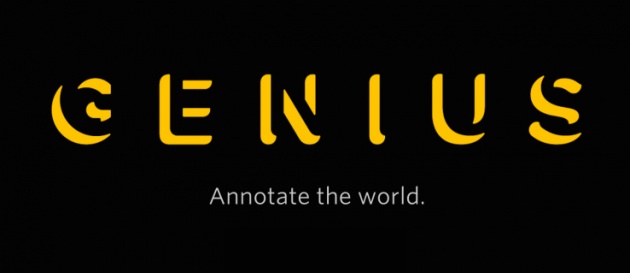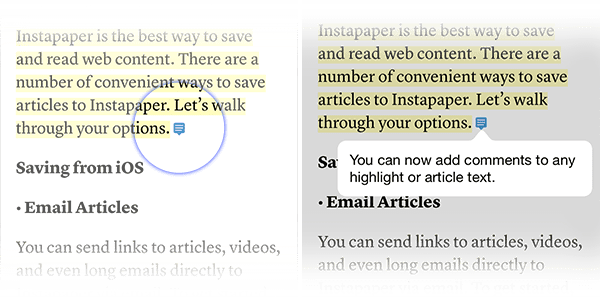
Online annotation platform Genius, which originally began as a way to mark up rap lyrics beforeexpanding to support any page on the web, is now making its service – including its collection of annotations and musical metadata – available to third-party developers for use in their own applications. The first partner to take advantage of the new API is Betaworks, which integratedGenius with Instapaper’s new Notes feature, launched yesterday.
In Instapaper, the Notes feature allows users to select a snippet of text from an online article and then make comments next to that text. By default, those annotations are private, but users can choose to share them through Twitter’s textshot feature, or through other third-party applications, like Facebook, Evernote, Tumblr, and more.
Genius’s API lets users post Instapaper Notes to Genius similar as to how they would post to Facebook, Twitter and elsewhere.

The new API also supports the ability for users to vote on annotations and earn “Genius IQ,” a sort of reputation system on Genius where points are awarded for various activities.
However, because of Genius’s history as a service that initially focused on music annotations, publishers of music-focused applications could also benefit from the new API, which is being made available for free, we’re told. Developers will be able to access the millions of crowdsourced annotations created to date on Genius.com, and will be able to search across Genius’s library of musical metadata, including artists, albums, and tracks.
More details on the Genius API are available here.
Genius itself has something of a colorful history, engaging in childish antics on stage at events like TechCrunch Disrupt, and co-founder Mahbod Moghadam made some inappropriate comments referencing tech leaders like Mark Zuckerberg and Warren Buffet in interviews. The company also got into trouble for trying to cheat Google Search results by incentivizing bloggers to add links to the site to boost its SEO. Moghadam was later forced to resign after making a misogynistic comment on the Genius annotation of the Santa Barbara Massacre perpetrator’s manifesto.
That being said, the site itself is one of the better resources for reading lyrics, as many of the competitors in the space are covered in spammy ads. And Genius often has a flare for translating corporate speak into layman’s terms by annotating press releases – like the one where Verizon’s acquisition of (TechCrunch parent) AOL was recently explained, for example.
Currently, Genius.com sees 30 million monthly visitors, who create over 100,000 annotations. The company says other API partners will be announced in the weeks ahead.



